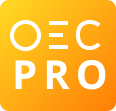Austria-Nigeria Trade: In 2022, Austria exported $165M to Nigeria. The main products that Austria exported to Nigeria were Light Pure Woven Cotton ($21.9M), Embroidery ($20.9M), and Electric Generating Sets ($11.8M). Over the past 5 years the exports of Austria to Nigeria have increased at an annualized rate of 8.73%, from $109M in 2017 to $165M in 2022.
In 2020, Austria exported services to Nigeria worth $30.8M, with Computer and information services ($21.7M), Other business services ($5.71M), and Transportation ($1.14M) being the largest in terms of value.
Nigeria-Austria Trade: In 2022, Nigeria exported $2.2M to Austria. The main products that Nigeria exported to Austria were Paper Containers ($1.05M), Polyacetals ($551k), and Raw Lead ($91.6k). Over the past 5 years the exports of Nigeria to Austria have decreased at an annualized rate of 60.5%, from $228M in 2017 to $2.2M in 2022.
In 2022, Nigeria did not export any services to Austria.
Comparison: In 2022, Austria ranked 8 in the Economic Complexity Index (ECI 1.5), and 32 in total exports ($209B). That same year, Nigeria ranked 127 in the Economic Complexity Index (ECI -1.67), and 51 in total exports ($70.7B).

